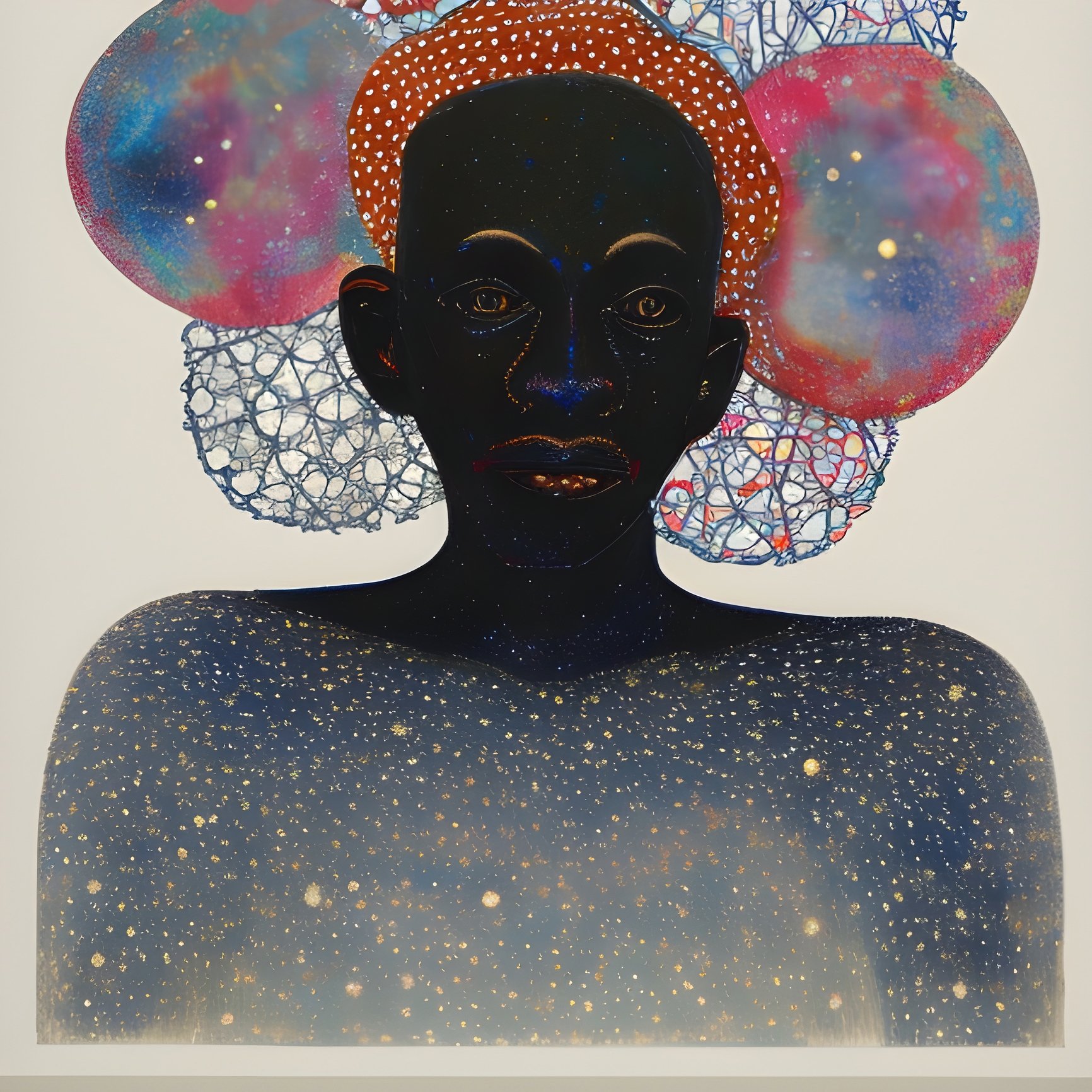Buffalo seasons Awareness in life

Holding the Whole Person: Depth Therapy for Trauma, Grief, & Meaning-Making
As a psychotherapist with training in depth psychology, existential philosophy, narrative theory, and Buddhist practice, I have found that integrating these perspectives provides a flexible and deeply humane foundation for clinical work. Clients often arrive in therapy not only seeking relief from symptoms, but longing to understand themselves, repair internal fractures, and live with a sense of purpose and authenticity. These traditions, when held together in dialogue, support that process by inviting the individual to meet their suffering with awareness, responsibility, and symbolic depth.

Into the Depths: Healing the Silenced Child Within.
When we think about childhood wounds, we often picture raised voices, harsh discipline, or neglect. But some of the most enduring wounds are inflicted not through what is said or done—but through silence. When a parent freezes a child out emotionally or silences their voice, the damage can echo for decades, shaping how that child sees themselves, others, and the world.
These wounds don't simply vanish with age—they resurface in adulthood, often in our struggles with intimacy, trust, creativity, or self-worth. Working with a depth psychotherapist can be a powerful way to explore these inner child wounds.

Understanding Persephone’s Journey.
As spring nears, one of the most profound myths of transformation might come to mind: Persephone’s descent into the Underworld and her return to the living world. Through a Jungian, feminist lens, this myth is not merely a tale of abduction but a rite of passage—a journey into the unconscious, a confrontation with the Shadow, and a rebirth into sovereignty.

Grief’s Five: The Essential Pillars of Healing.
Grief is a deeply personal and often overwhelming journey. It can consume your energy, alter your perception of the world, and make even the most basic self-care practices feel like monumental tasks. While there is no roadmap to healing, there are five foundational elements—what I call Grief’s Five—that can help support you during this difficult time: sleep, nutrition, hydration, exercise, and socialization. These pillars serve as gentle guides to sustaining your well-being while navigating loss.

Communication, Curiosity, and the Power of "Yes, And"
Communication is more than an exchange of words—it is a way of relating, understanding, and co-creating meaning with others. The way we respond in conversation can either open new possibilities or shut them down. A subtle but powerful shift in language, from saying “yes, but” to “yes, and could you tell me more?”, fosters curiosity, reduces defensiveness, and enhances meaningful dialogue. Both Jungian psychology and Dialogue Therapy, developed by Polly Young-Eisendrath, PhD and Ed Epstein, PhD support an approach to communication that prioritizes openness, relational attunement, and the integration of multiple perspectives.

How Narrative Therapy Can Reduce Perseverating Thoughts.
Perseverating thoughts are the persistent, repetitive thoughts that can dominate our mental landscape—perhaps feeling like a broken record, running on an endless loop, often leaving us feeling stuck and overwhelmed. These thoughts may revolve around a particular worry, fear, regret, or trauma, and their constant presence can interfere with daily functioning and well-being. Narrative Therapy can help you get unstuck.

Understanding the Therapeutic Alliance: Transference & Countertransference
Transference and countertransference offer unique opportunities to understand the unconscious mind at work. They illuminate relational patterns, unmet needs, and unresolved wounds that often drive present-day behavior. When handled skillfully, these phenomena deepen the therapeutic process, offering a gateway to profound healing and transformation for both the client and the therapist.

Understanding the Mother Archetype in Menopause
One of the most profound shifts in a woman’s life occurs during (peri)menopause(post)—a transitional period that signals the closing of one chapter and the beginning of another. The Mother archetype, traditionally associated with fertility, nurturing, and generativity, undergoes a profound transformation during this phase. To understand this shift from a Jungian perspective, it’s essential to explore how the Mother archetype manifests, both in its light and shadow, during (peri)menopause(post).

Embracing The Triple Goddess in (Peri)Menopause(Post)
By engaging with the energies of the Maiden’s curiosity, the Mother’s creativity, and the Crone’s profound insight, women can reclaim parts of themselves that may have been overshadowed by societal expectations or life’s demands.

Rediscovering the Maiden in You
The Maiden archetype often gets relegated to a youthful, naïve part of ourselves—a phase we outgrow as we journey into the responsibilities and complexities of adulthood. But as women navigate (peri)menopause(post), we often find ourselve drawn back to their Maiden selves, not as a nostalgic longing for youth, but as a deeper understanding of what she represents.

Embracing the Crone in You.
There comes a moment in every woman's life when the vibrant energy of the Maiden and the nurturing strength of the Mother evolve into something even deeper and richer: the wisdom of the Crone. This archetype, rich with insight and cloaked in mystery, emerges during (peri)menopause(post) as a culmination of the gifts and lessons from the earlier phases of life. From a Jungian perspective, this transition into the Crone phase is not merely a biological or chronological inevitability but a deeply symbolic and transformative process.

Tis’ the Season: Tips on Getting Ahead of Seasonal Affective Disorder (SAD)
As the days get shorter and colder, some people experience more than just the typical winter blues. Seasonal Affective Disorder (SAD) is a type of depression that follows a seasonal pattern, often occurring during the fall and winter months in the Northern Hemisphere. According to the American Psychiatric Association, SAD is considered a form of major depressive disorder with a seasonal pattern, primarily impacting individuals in higher latitudes where winter days are shorter and sunlight is limited (American Psychiatric Association, 2017). Understanding SAD can help us recognize its symptoms and find ways to manage it effectively.

Hurricane Helene Resources & Crisis Support
Offering Hurricane Helene resources and crisis support information.

Being Cancer Aware, Every Day
October is Breast Cancer Awareness Month, a time dedicated to raising awareness, supporting those affected, and encouraging action toward early detection and prevention. While Breast Cancer Awareness Month aims to promote education and support, it can be emotionally triggering for some patients. Media attention, pink ribbons, and public discussions may evoke feelings of anxiety, fear, or even survivor’s guilt. Those in remission might feel the return of emotions they had worked hard to manage, such as the trauma of treatment or the uncertainty of their health’s future. Additionally, for those who have lost loved ones to breast cancer, the month may bring back painful memories, exacerbating grief and feelings of helplessness. In the spirit of awareness, this blog post honors anyone who has been touched by breast cancer, their struggles, their resilience, and their spirit. It also honors anyone who has been touched by any type of cancer, their struggles, their resilience, and their spirit.
To be all-inclusive, I suggest that as a society we adopt Being Cancer Aware, Every Day in an effort to support everyone impacted by cancer.

Surviving Hurricane Helene: Self-Care Tips & Volunteer Efforts
In the aftermath of Hurricane Helene, communities in Western North Carolina are in need of assistance. During natural disasters, self-care is crucial for maintaining mental, emotional, and physical well-being. The chaos and uncertainty of such events can cause high levels of stress and anxiety, making it easy to neglect basic needs like sleep, nutrition, and emotional balance. Practicing self-care ensures that individuals stay resilient and able to cope with the demands of the situation. This may involve setting aside moments for relaxation, eating regularly, staying hydrated, and reaching out to loved ones for emotional support. Prioritizing self-care not only helps in managing immediate stress but also strengthens long-term recovery, enabling people to better support themselves and others during these difficult times.
This blog post provides tips on reducing stress due to a natural disaster and provides real-time volunteer opportunities for those wanting to help Western North Carolinians.

Reducing Anxiety through Paradoxical Intention
Viktor Frankl's concept of paradoxical intention is a therapeutic technique in which individuals intentionally engage in or exaggerate the very thoughts, behaviors, or symptoms they fear or wish to avoid. By doing so, they break the cycle of anxiety and anticipatory tension that typically makes the feared outcome more likely. The principle behind this approach is that fear often intensifies when we try to avoid it, and by paradoxically embracing or confronting the fear, the emotional response weakens.

A Jungian Journey Towards Transformation
Jung's analytic psychology is essential for therapeutic healing and unfolds in four distinct stages: Confession, elucidation, education, and transformation. Each stage serves a unique purpose in helping individuals discover their sense of wholeness and autonomy, which leads to integration and individuation. This blog post delves into these stages to explore how they facilitate personal growth and healing.
Making Friends with One’s Anxiety …
Managing anxiety can be approached with a variety of techniques that help externalize and reduce the mental load. Engaging in mindfulness can significantly reduce anxiety by fostering greater awareness and acceptance of the present moment. Through practices like meditation, deep breathing, and mindful observation, individuals learn to observe their thoughts and emotions without being overwhelmed by them. This shift in perspective helps break the cycle of anxious thinking, allowing for a more grounded and calm response to stress. By cultivating a non-judgmental attitude toward thoughts and feelings, mindfulness empowers people to respond to anxiety with compassion and clarity, rather than fear or avoidance, ultimately leading to improved emotional well-being and resilience.

Tips for Parenting Behind the White Walker Wall.
Co-parenting, a collaborative arrangement in which both parents actively participate in raising their children despite not being in a marital or romantic relationship, is becoming increasingly common in today's society. According to recent statistics, approximately 50% of children in the United States will experience their parents' divorce, and a significant number of these families will transition to co-parenting arrangements. The importance of effective co-parenting to children's well-being cannot be overstated. Research consistently shows that children who grow up with cooperative co-parents tend to exhibit better emotional, social, and academic outcomes compared to those in high-conflict or single-parent households. Researchers provide robust data supporting the benefits of co-parenting, highlight how positive co-parenting relationships contribute to a stable and supportive environment, fostering resilience and healthy development in children.
This article provides tips on how to co-parent.

Finding the power in Myth: Hecate, Goddess of Illumination
By embodying Hecate’s attributes and drawing lessons from her mythology, women can find strength, wisdom, and empowerment to navigate their own journeys with confidence and agency. Like all of us in different periods of our life, Hecate stands at the crossroads. Connecting to our inner Self through meditation and active imagination, we can gain inspiration from ancient archetypes and mythological figures such as Hecate as we bravely navigate our own paths, accept the weight of our choices and the responsibility of creating our own essence.

